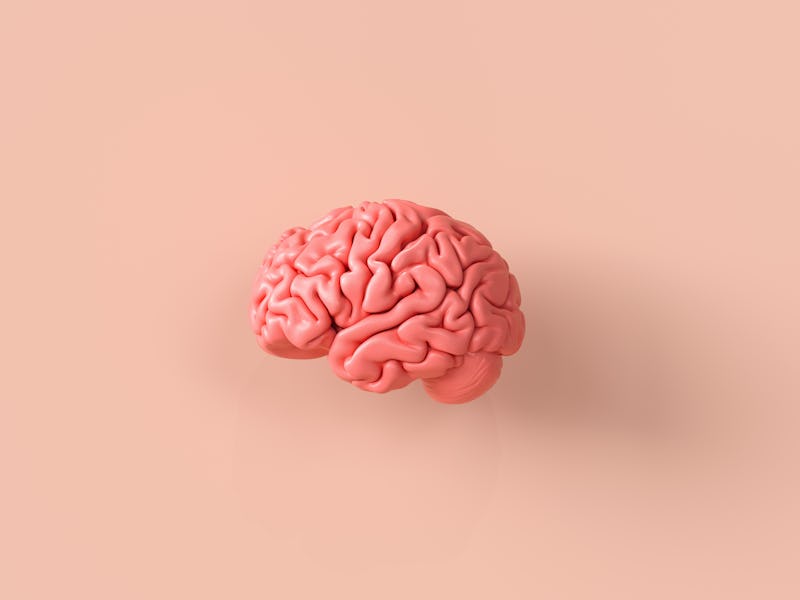Study: An early life spike in blood pressure can pummel your brain
People with years of elevated blood pressure also did worse on cognitive tests

A lifetime of high blood pressure may alter the structure of the brain for the worse, according to new research.
The findings present a reason to consider blood pressure — a facet of health tied to several measures of wellbeing and one that can be lowered through lifestyle changes — as one way to predict the trajectory of your brain health.
What’s new — In a study published in JAMA Network Open this month, people who experienced increases in blood pressure between early adulthood and middle age were more likely to have less grey matter, the portion of the brain that controls body movements, retains memories, and regulates emotions. People with a history of elevated blood pressure also scored worse on cognitive tests.
Science In Action — In 1983, researchers at the University of Alabama at Birmingham began the longitudinal study, The Coronary Artery Risk Development in Young Adults. They recruited 5,115 healthy individuals, of all races and genders, from four divergent U.S. metropolitan areas, all of whom would be between 18 and 30 years of age from 1985 through 1986. All agreed to undergo periodic medical examinations throughout a period of years so researchers could look for correlations between their heart health metrics and outcomes.
LONGEVITY HACKS is a regular series from Inverse on the science-backed strategies to live better, healthier, and longer without medicine. Get more in our Hacks index.
Of the 4,677 participants still alive and providing the study with data, 885 agreed to undergo MRI scans in 2011 or 2016 (some underwent a scan both years). At that point, the participants were between 42 and 61 years old, with a mean age of 50.3.
The researchers — most of whom worked at the National Institute on Aging or University of Alabama at Birmingham — correlated findings from those MRIs with their blood pressure history.
Blood pressure is the pressure of blood pushing against the walls of your arteries and there are a few ways to measure it. For this study, the most important measurement was mean arterial pressure (MAP), the mean pressure in the large arteries throughout a cardiac cycle. People whose mean arterial pressure increased over the years were more likely to show some signs of poor brain health, including lower volumes of grey matter as a ratio to white matter.
Grey matter, located around the exterior, controls the processing of many high-level brain functions. White matter, found in the interior of the brain, is responsible for communication within the brain. Both are important but having less grey matter, in proportion to white, is a sign of reduced brain capacity.
high blood pressure was correlated with worse scores on tests of verbal memory and of executive function
People whose mean arterial pressure ratcheted up through the years also had lower cerebral blood flow to the gray matter. In past research, midlife hypertension and other issues of heightened blood pressure were associated with greater white matter volume versus grey in later life. Scientists don’t understand the mechanisms through which this works. One theory is that elevated blood pressure impedes smooth collaboration between the cerebral and cardiovascular systems and damages the small blood vessels involved in brain development.
Interestingly, people who started with high blood pressure and maintained it did not have all of the same signs of poor brain health, though they did have more signs of damage to their white matter and decreased blood flow to their gray matter when compared to people who had consistently low blood pressure.
Also, high blood pressure was correlated with worse scores on tests of verbal memory and of executive function — a category of higher-level brain functions involved in planning, organizing, and self-control. This was true whether or not blood pressure rates increased or were consistently high throughout the years.
Cutting down on salty foods is one way to decrease blood pressure. According to McGill University researchers, a slice of pizza contains 600 to 1,500 milligrams of salt.
Luckily, the kind of blood pressure history linked to poor brain development is rare: 65 percent of the people in the sample did not have any kind of high blood pressure. Another 23.2 percent had high but staple blood pressure. This means the kinds of growths in blood pressure associated with the worse brain outcomes were limited to about 12 percent. This roughly correlates to rates of hypertension among people 50 and under in the U.S.
Why It’s A Hack — High blood pressure is reversible. Changeable lifestyle factors that increase blood pressure include obesity, lack of exercise, high sodium consumption, tobacco use, and heavy drinking. Stress and caffeine might increase it. Health experts almost universally agree that tackling these factors can reduce blood pressure.
How This Affects Longevity — Reductions in grey matter and the depletion of blood flow to a crucial brain area could instigate or hasten age-related cognitive issues. The researchers write: “Timely treatment of high [blood pressure] could prevent known effects of elevated BP as a risk factor for cognitive impairment and dementia.”
Hack Score — 4 out of 10 free-flowing capillaries 🔴🔴🔴🔴